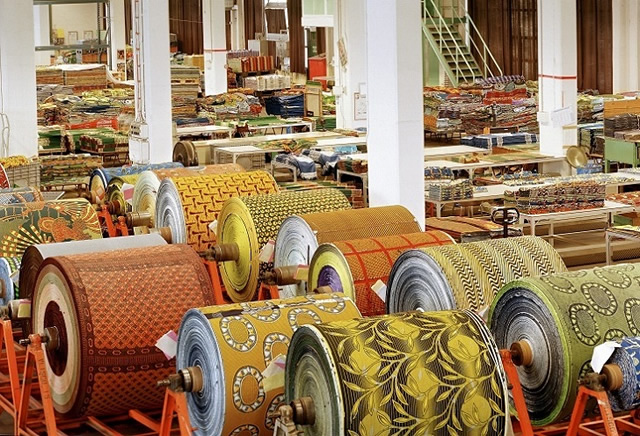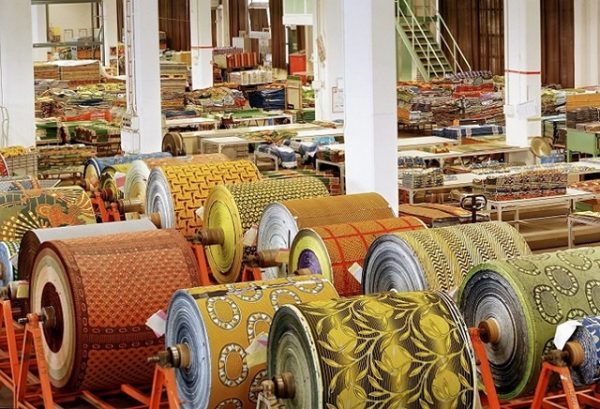Nigeria’s textile industry craves a second golden age.
The first was set in the 1970s and early 1980s. Textile factories were alive with activity, spinning and ginning tons of fabric. Kano, Kaduna, Lagos, and Aba all had thriving material manufacturing sectors. There were over 180 of such large textile companies in the country; taken together, they employed close to half a million people.
Read more about Business
Nigeria battled Egypt and South Africa for the title of Africa’s top textile producer.
Today, the industry seems a shadow of its former self. Most of the old factories have long shut down. A lot of these sites are in a deplorable state. And the local markets aren’t very enthusiastic about the little that’s still being made on our soil.
Fabrics from Asia have flooded the stores of Kano’s Kantin Kwari and Aba’s New Market. Products made in Nigeria are struggling—and failing –to compete.
How did we get here? Is there a way out of the textile industry’s current quagmire?
Finding out the origins of the industry’s woes requires that we first learn about its emergence and glory days. So here’s a brief primer in the history of the textile business in Nigeria.
The Good Old Days
Hundreds of years before the British colonized what is now Nigeria, several communities in the region were engaged in the production of cotton and cotton fabric. The Esan of Edo State, for example, grew the cotton that was spun into the famous ‘Benin cloth’. In Iseyin, the locals fashioned Aso Oke. And up north, there were the Kofar Mata pits, where fabrics were dyed into attractive indigo material.
But the modern textile industry took off in 1956 when the first fabric making factory was established in Kaduna. Within a decade, several others had sprung up across the north and elsewhere in Nigeria.
Find our comprehensive listings of businesses in Nigeria here https://businesses.connectnigeria.com/
The 1970s were boom years for the industry. Buoyed by government support for manufacturing, the number of textile factories swelled. By the early 1980s, the textile industry had become one of the top employers of labour. Lagos alone had 250,000 workers in the sector. The industry sourced its input from a staggering 600,000 or more cotton farmers all over the country.
How The Decline Happened
Unfortunately, textile production began to decline shortly afterwards. Multiple factors were responsible for this. Starting in the 1980s, Nigeria was battered by the pressure from falling oil prices. The ripple effect impacted most parts of the economy, including manufacturing.
Another factor was the change in the prevailing global agreement on international textile trade. The Multi Fibre Agreement (MFA), which had governed the trade since 1974, had restricted the volume of textile products exportable to developing countries from countries like China. When that agreement was retired in 1995, Nigeria and other African countries could no longer compete with China on the international textile market.
Over time, fabric imports from China have displaced locally made fabrics. The imports are in much higher demand because they are cheaper. Nigerian manufacturers can’t compete on pricing because their production costs are high. Power supply to their factories is erratic, and alternative power sources are expensive.
Today, Nigeria spends more than $4 billion on foreign textile imports. This happens despite the government’s disapproval of it. There are now less than 25 textile factories in the country, and many of them function well below capacity.
Is A Revival Around The Corner?
The government has attempted to reverse this situation. In 2020, the CBN approved a ₦50 billion intervention fund for cotton, textile and garment production industries. In the preceding year, the federal government had assented to the use of two GMO varieties of cotton that were high yield and pest resistant.
Efforts like these may ameliorate some of the problems that local fabric producers face. But they won’t be enough. That’s because the major problem faced by these firms is their inability to compete in a market saturated with cheap imports.
The government can address this by fixing the issues that drive high production costs for Nigeria’s manufacturers—especially the lack of adequate infrastructure.
In the end, it will take the joint will of the authorities and private sector concerns to fire up the engines of this promising, yet semi-hibernating sector.
Featured Image Source: Businessday NG
Got a suggestion? Contact us: [email protected]


